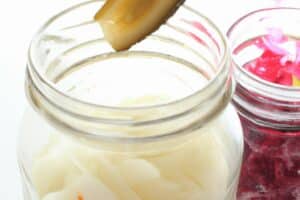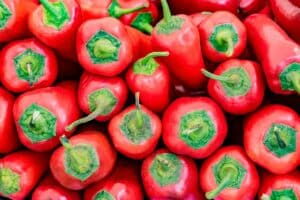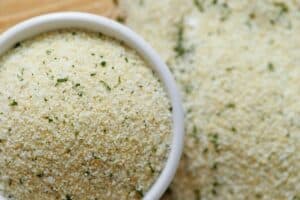Salt is a universal seasoning perfect for just about every kind of food. Pretzel salt, in particular, is used on pretzels, bread, and in other various recipes; luckily, if you don’t have pretzel salt on hand, countless other salt alternatives perfect flavor and compliment your food.
What is Pretzel Salt?
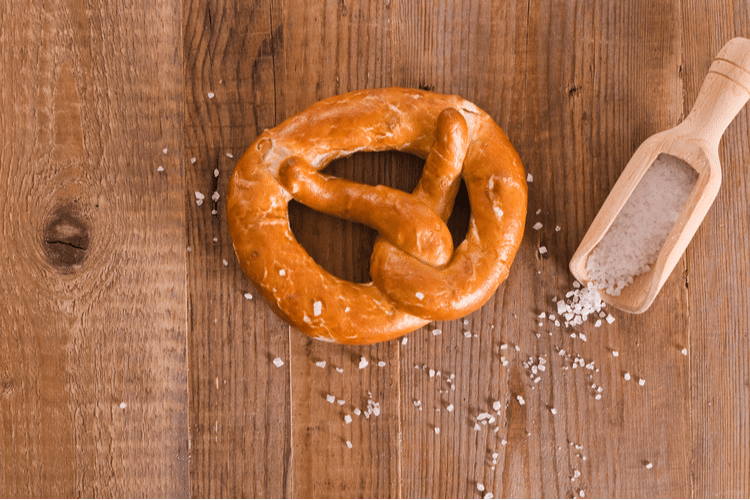
Pretzel salt is substantial in size and is used for various foods. Its flat rectangular shape helps it to stick easily. It’s used on baked goods such as pretzels, rolls, and other types of bread.
It’s also used to cure meat and pickle certain foods. Pretzel salt can also be used as a course rub or for crusting meats.
Where to Buy Pretzel Salt
Pretzel Salt is found at most local groceries stores. You can also order from online retailers such as Amazon.
List Of Pretzel Salt Substitutes
1. Red Diamond Sea Salt
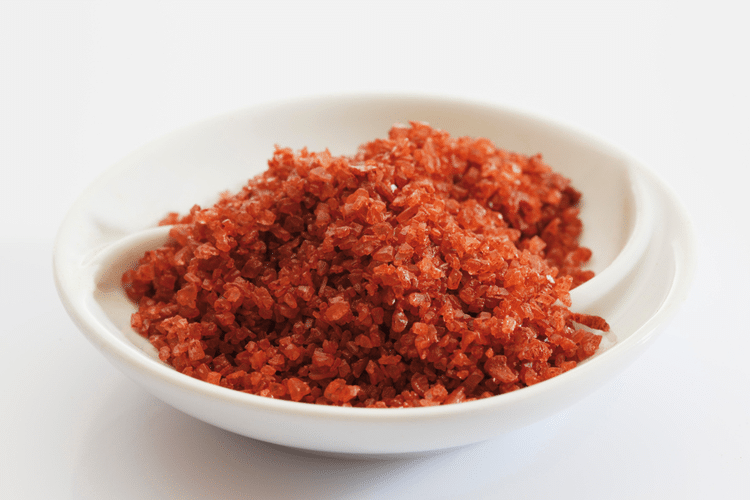
Red Diamond sea salt is composed of 50 different minerals. It’s natural and is found and removed from the earth. Due to the 50 natural minerals, red diamond sea salt reflects a unique color.
Another critical benefit to note about red diamond sea salt is its unrefined like most salts. It’s completely natural and void of additives such as dextrose. Any additives in salt can cause trouble if it’s not a natural salt.
Specifically, dextrose is known to cause fluid retention, can build up fluid in the lungs, high blood sugar, and swelling. Therefore, it’s essential to keep an eye on whether any salt is natural and how your taste buds and body react.
2. Kosher Salt
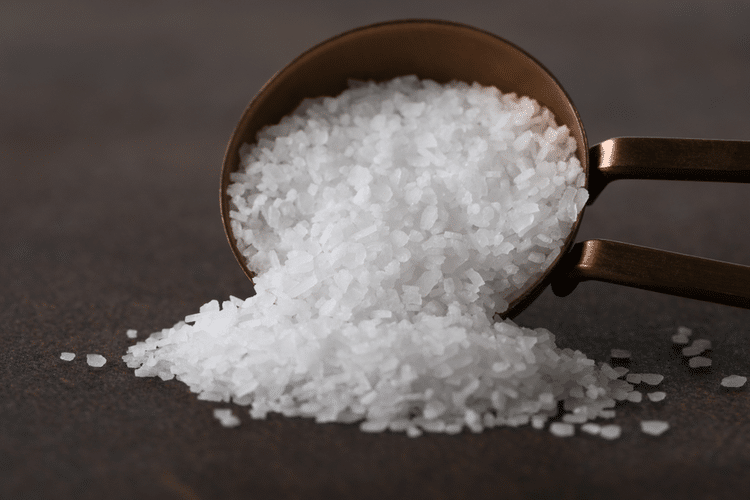
Kosher salt and pretzel salt strongly resemble one another in appearance. It can take two shapes, similar to a pyramid or a flat. These shapes are excellent for clinging on to food without the worry of it falling off and risk losing that extra flavor.
You won’t have to worry about kosher salt infusing an overly salty flavor in food. Instead, it strengthens the flavor while providing an underlying distinct delicious taste.
Related: Pickling vs Kosher Salt Comparison
3. Rock Salt
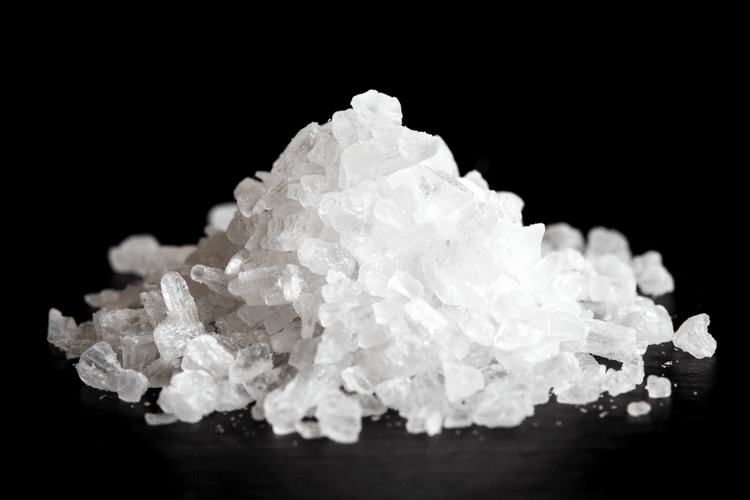
Rock salt is thick in size and has a texture similar to pretzel salt. It’s a little rugged, making it perfect for crusting various meats.
It’s formed through evaporation after the evaporation has taken place, layers of salt, and other ocean sediments from the crystals.
A great benefit of rock salt is that it’s especially ideal for those interested in low sodium diets. More deficient sodium diets are associated with a reduced risk of heart attack, cardiovascular disease, and stroke.
4. Morton Salt
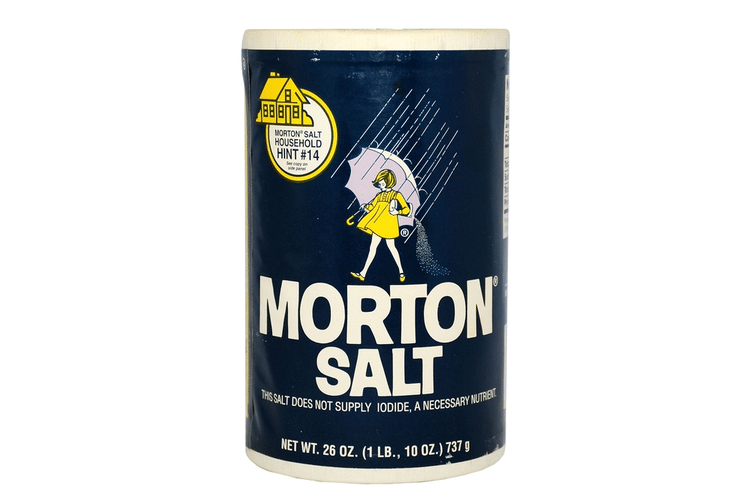
Morton salt is among the more common salts to use. It’s coarse and sized perfectly for picking up and applying to foods. The flavor of Morton salt is subtle but just enough to add the right amount of zest to any meal.
An added benefit of Morton is that it contains iodide. Iodide is vital for the thyroid gland and crucial for overall development and other vital functions.
Lastly, Morton salt contains potassium which helps to reduce the risk of developing kidney problems, stroke, heart problems, and high blood pressure.
5. Bagel Salt
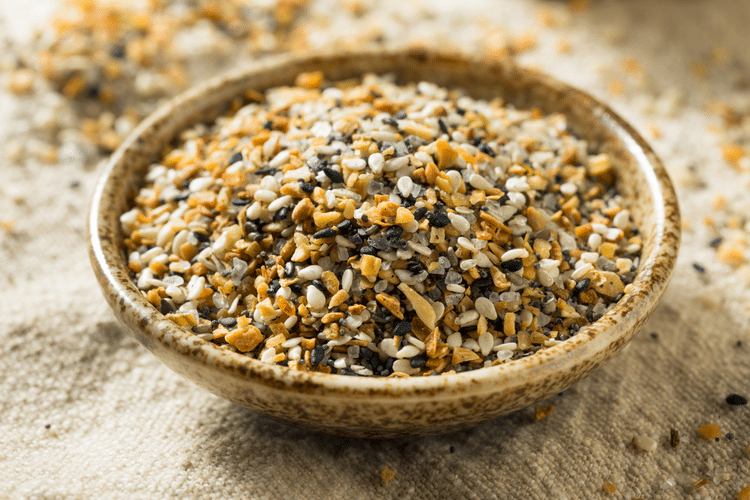
Bagel salt is what it sounds like, salt used on bagels. Its composition comes from the formation of sea salt. This similarity automatically makes it an excellent pretzel salt substitute.
Of course, since it’s used on bagels, it can be used on countless baked goods, including pretzels and even fries.
6. Margarita Salt
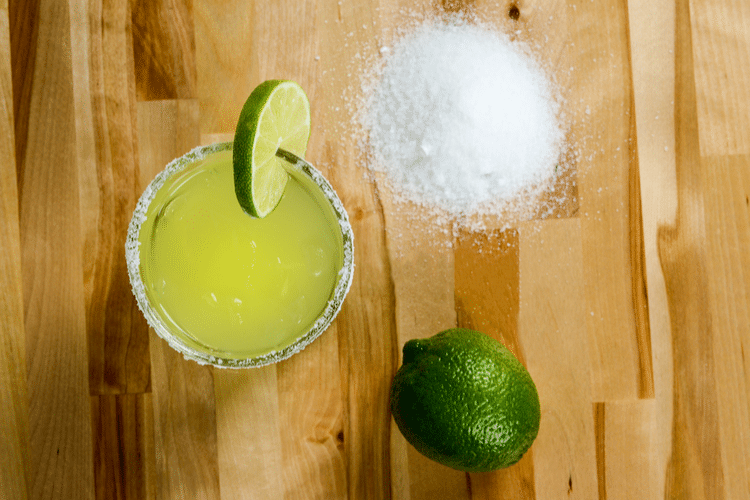
Margarita salt is similar in texture to pretzel salt, making it another good substitute. The salt itself is coarse and lightly crunchy. It also dissolves once eaten and comes in a variety of colors.
In terms of taste, margarita salt is flavorful but not too powerful. One unique aspect of margarita salt is that it comes in various dyed colors.
However, this could affect its natural flavors. Otherwise, the taste is somewhat indistinguishable in comparison to pretzel salt.
7. Coarse Sea Salt
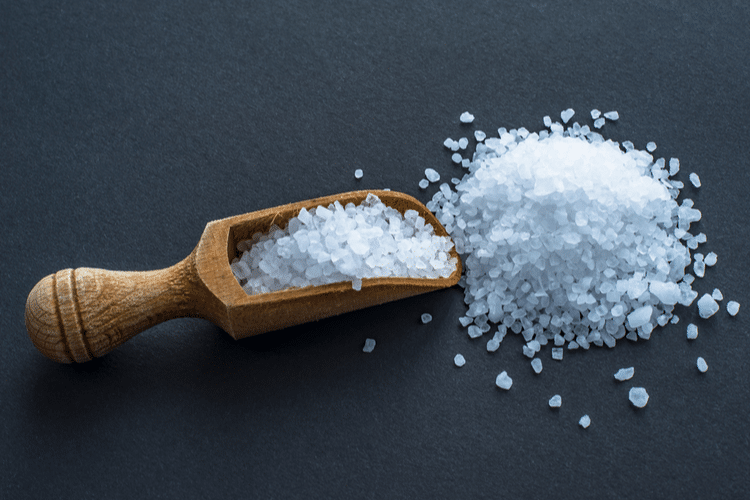
Coarse sea salt differs from most salt in general due to its strength in flavor. Its taste is more potent and saltier in comparison to other salts.
Coarse sea salt is sizable and is often used with meat as a crust but can also be used in various recipes.
A few health benefits come along with consuming coarse sea salt—first, several nutrients inside coarse salt, including potassium, calcium, magnesium, and sodium.
All of these are vital for staying hydrated and various bodily functions. They aid in keeping blood pressure stable, reconstructing injured tissues, keeping muscle functions regulated, and more.
8. Pink Himalayan Salt
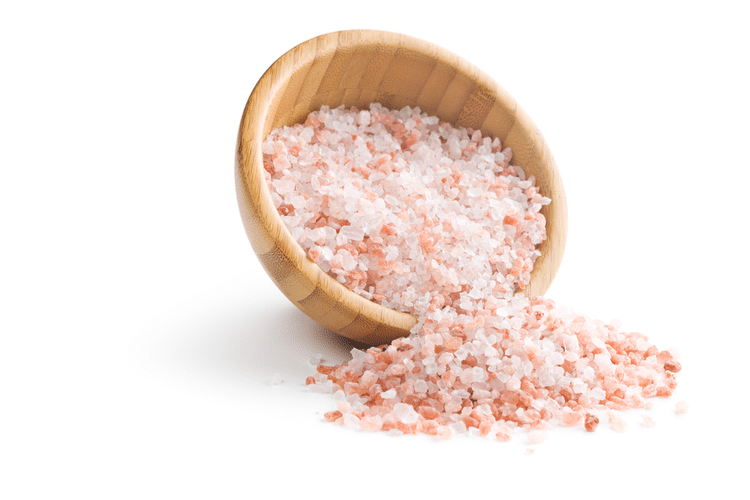
Believe it or not, Pink Himalayan salt is an excellent substitute for pretzel salt. Pink Himalayan salt originated from and was farmed in Pakistan’s Himalayan Mountains.
Pretzel Salt and Pink Himalayan salt are similar in texture, size, and shape. However, besides the color, Himalayan salt contains a higher nutritional value due to the 84 minerals found inside it.
These natural minerals all can be found inside our bodies which means this salt is seriously beneficial for your health on top of its great taste. These include fluoride, bromide, strontium, sulfate, magnesium, and borate.
These play an essential role in tissue development, healthy blood sugar levels, decreasing inflammation, a healthier heart, and a more robust immune system.
9. Flake Salt
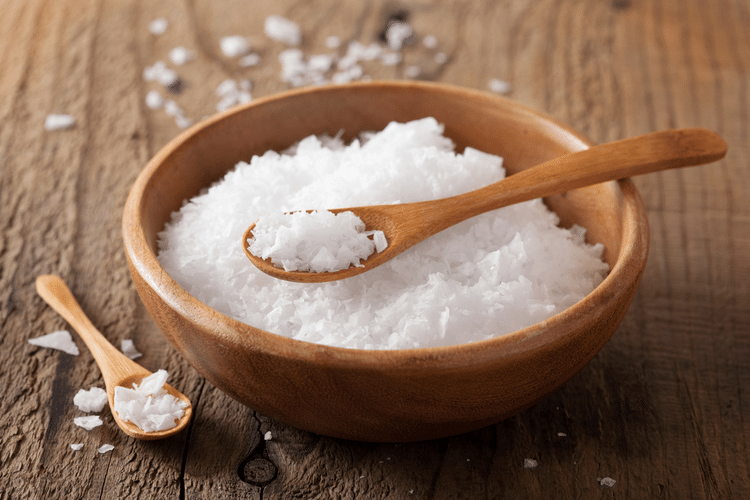
Although flake salt is different in shape from pretzel salt, it’s a beautiful substitute. Several recipes can be found using flake salt instead of pretzel salt. This is because it offers the same delicate tang of pretzel salt, although lighter.
Flake salt is thin and pyramid-shaped. It’s not coarse in texture, but you can’t tell from the flavor. It, too, can be used on various baked goods and even sweets or salads. However, flake salt doesn’t have a high mineral content.
Despite this, it’s a great substitute, especially if you’re a fan of salt that isn’t too coarse or thick in texture.
10. Celtic Grey Sea Salt
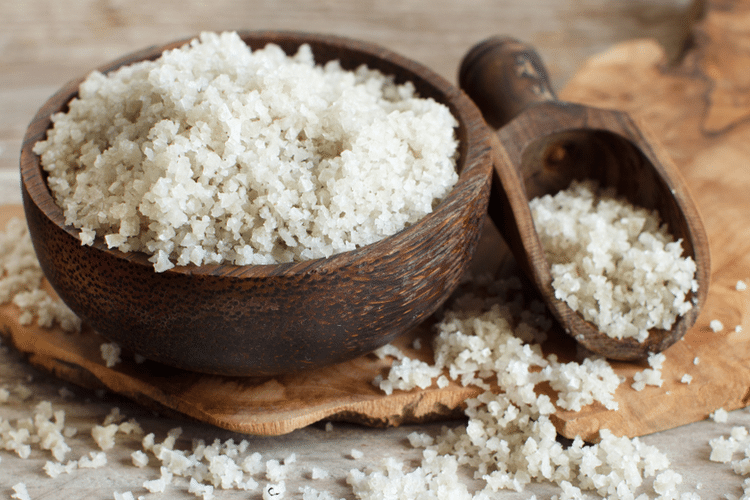
The last substitute is Celtic grey sea salt. This salt originates from the coast of France and, like its name, is a grayish hue. The color is a result of the minerals left after the evaporation process.
Celtic gray sea salt is much like regular sea salt except for the color difference. It’s a little chunky and a tad coarse. On the other hand, it doesn’t dissolve too quickly, making it all the better as a substitute.
Pretzel Salt vs Kosher Salt
Kosher salt originally got its name from the process in the Jewish religion of draining blood from the meat. It’s forbidden to consume meat with blood, and therefore, the salt helped draw the blood from the meat.
It is, however, essential to note that not every kosher salt is kosher. The salt must go through a specific set of standards to be deemed kosher. If you’re looking for kosher salt that these guidelines apply to, look for the words kosher certified on the label.
Kosher salt and pretzel salt share some similarities. Neither salts consist of additives, but they instead contain sodium chloride. Bath salts are also coarse and sizable. The difference is that kosher salt dissolves quickly.
Also, kosher and pretzel salt are very similar in flavor. Both add a subtle hint of saltiness to dishes without overpowering the natural flavors. They instead provide the perfect amount of saltiness to meats and baked goods.
Another big difference between pretzel salt and kosher salt is that pretzel salt is translucent in appearance.
Pretzel Salt vs Sea Salt
Sea salt, like its name, comes from the sea. The process of its creation happens once ocean water ( or lakes) has evaporated, the salt is what is leftover.
Sea salt keeps its nutrient minerals due to being lightly processed. The minerals retained help bring out the color and flavor in sea salt.
A unique aspect of sea salt is its many health benefits due to the minerals it contains. These nutrient minerals have a massive effect on several systems within the body. Without them, the body would remain in an unhealthy state.
Sea salt’s health benefits include reducing fluid retention, improved digestion, and regulated blood pressure. It also aids in preventing muscle cramps and keeping the adrenal glands healthy.
These are all essential bodily functions, and keeping them healthy is critical. Consuming a healthy amount of sea salt in coordination with these benefits will yield outstanding results for your health.
You will experience less fatigue and more energy. You will also see a decrease in inflammation, healthy blood pressure levels, and a sense of feeling stronger and healthier overall.
It’s important to note that only natural salt provides health benefits. If it’s unhealthy, it will do the opposite and cause health problems.
A way to distinguish harmful salt from healthy is the color. Healthy salt has color, and unhealthy, refined salt will be white.
Some signs white salt is harming your health are bloating, swollen ankles or wrists, dehydration, and persistent kidney stones. It may be helpful to change the amount of sodium you’re consuming if you’re experiencing any of these symptoms.



